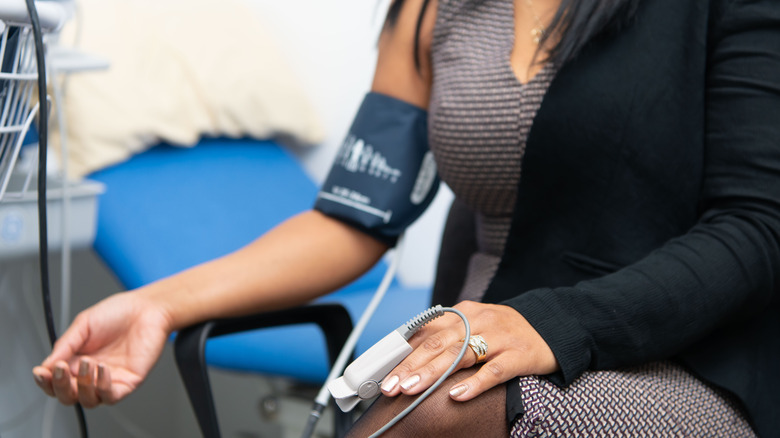Can Fish Oil Lower Blood Pressure?
Fish oil has many health benefits that stem largely from the omega-3 fatty acids in it. These fats — docosahexaenoic acid (DHA) and eicosapentaenoic acid (EPA) — are polyunsaturated. They are considered to be good for your overall health, per Verywell Health. Along with fatty acids, fish oil contains vitamin A and vitamin D.
It is said that fish oil shows promise in helping ease the pain of rheumatoid arthritis (via Web MD). The DHA in fish oil could help prevent heart disease. In addition, it may even improve cognitive function and reduce the risk of Alzheimer's disease and dementia, according to Healthline. Meanwhile, the EPA in fish oil shows promise in helping your body fight inflammation. As for the fatty acid, it might improve bone density and muscle mass, as well as increase strength. While more research is needed, fish oil also shows potential in improving eye health, according to Health.
How does fish oil affect blood pressure?
Along with the aforementioned benefits, research shows that fish oil can help reduce blood pressure. Part of the reason has to do with the fact that high blood pressure is linked to a malfunction of the endothelium (the lining of the cell walls), that can lead to plaque buildup in the arteries. Some research indicates that fish oil can help the endothelium function properly, according to Verywell Health. In addition, a 2014 study published in the American Journal of Hypertension showed a decrease in both systolic and diastolic blood pressure numbers. The Mayo Clinic also notes that other studies have shown similar results, pointing out that people who have moderate to high blood pressure might benefit the most from consuming fish oil.
To add more fish oil to your diet, you can take fish oil supplements. Alternatively, you can eat more salmon, mackerel, sardines, or anchovies (via Very Well Health). Fish oil is considered generally safe. However, it could interact with other medications for high blood pressure, contraceptives, and anticoagulant drugs, so check with your doctor if you have any concerns.


